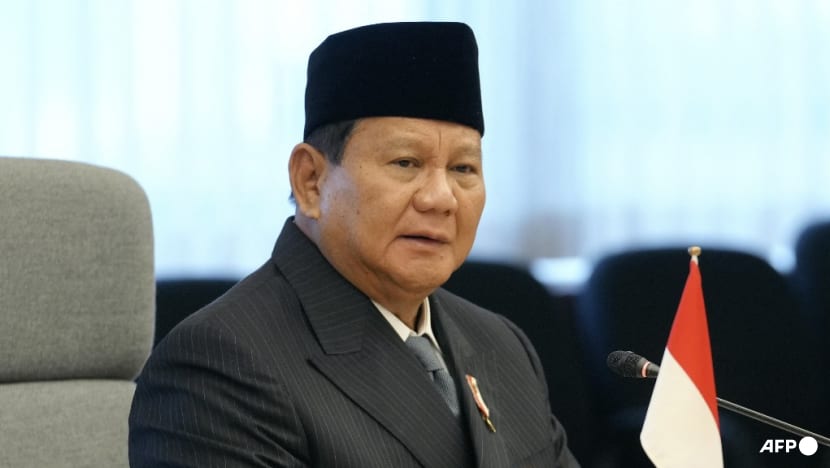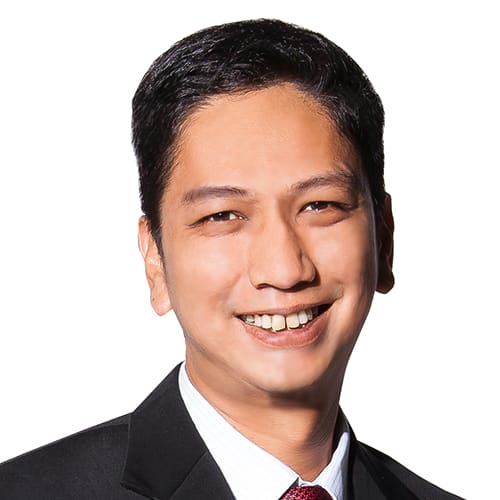analysis Asia
Prabowo’s plans to upsize Cabinet could be bad for international business, strain state coffers: Analysts
As Indonesia's incoming president approaches parties to bulk out his coalition, Indonesia deliberates raising the limit on the number of ministries. But some experts say a focus on partners’ needs could come at the country’s expense.


This audio is generated by an AI tool.
JAKARTA: Analysts have warned tough times could be ahead for Indonesia’s economy and international investment climate as the country’s next president, Prabowo Subianto reportedly aims to upsize his Cabinet.
The incoming president could add several new ministries once he is inaugurated on Oct 20, with a number of politicians from his Great Indonesia Movement Party (Gerindra) saying that there might be as many as 41 state ministers in his upcoming Cabinet.
Parties in the legislature began deliberations earlier this month on revisions to the 2008 Ministry law which currently limits the number of ministries to 34.
A draft version of revised law, agreed upon by members of the House Legislation Body last Thursday (May 16), says the number of ministerial posts should be “determined in accordance with the needs of the sitting president,” according to the Jakarta Post.
But experts speaking to CNA warned that complicated bureaucracy, increased scope for corruption and inefficiency risk becoming hallmarks of Mr Prabowo’s first term, due to the clashing opinions and increased expenditure that come with more ministries.
Mr Bhima Yudhistira, executive director of think-tank, Centre of Economic and Law Studies (CELIOS) warned that adding more ministries could make Indonesia a less attractive place to invest and do business.
“More ministries means more bureaucracy and less regulatory certainty. Doing business, obtaining permits will be more complicated and that might put off several foreign investors,” he told CNA.
Mr Bhima added that several members of the Cabinet sometimes do not see eye-to-eye on some issues, have different priorities and issue conflicting ministerial regulations which can complicate the way businesses obtain licenses and permits.
In the latest World Bank’s Ease of Doing Business index, Indonesia ranked 73rd out of 190 countries surveyed in 2020. In the study, the archipelago ranked poorly compared to other countries in areas like ease of starting a business, enforcing a contract, trading across borders and dealing with construction permits.
After a four-year hiatus due to criticisms of its methodology and accuracy, another study is scheduled to be released later this year.
More ministries would also mean more operational costs, and more ministers, both of which would add further pressure on government finances, say analysts.
“What we need is fewer ministries than what we have today, not more. Minimising the number of ministries can lessen the burden on our state coffers,” Mr Tauhid Ahmad, an economist from the think-tank, Institute for Development of Economics and Finance (INDEF) told CNA.
This year, Indonesia is expected to spend 1,090 trillion rupiah (US$68 billion), nearly a third of the Southeast Asian nation’s total expenditure, to cover the operational expenses of its 34 ministries as well as salaries and benefits for about 4.2 million civil servants.
Analysts said adding more ministries means this spending will likely balloon in 2025.
“These ministers have to get paid, not to mention the benefits they will receive. If there are vice ministers then we need to pay for their salaries and benefits too. That’s not including the team of advisors, expert staffers and other employees these new ministries will have,” political expert Ray Rangkuti told CNA.
“Having a leaner Cabinet avoids all these. (Having fewer ministries) can lead to a simplified bureaucracy, faster decision making and more efficient government expenditure,” he said.
Related:
STIRRING CONTROVERSIES
The idea of adding more ministries to the incoming president’s Cabinet has been floated since last month by members of the Advanced Indonesia Coalition which supported Mr Prabowo’s election bid.
"There is a need (for more ministers),” Mr Budiman Sujatmiko, the coalition’s advisor told Tribun news portal on May 7. “Prabowo wants his strategic programmes to be implemented quickly like free lunch, affordable school, public housing in villages and cities.”
The free lunch initiative has been the centrepiece of Mr Prabowo’s nationwide campaigning prior to the Feb 14 presidential election. Mr Prabowo won 59 per cent of the votes and has been officially declared the winner of the election by Indonesia's General Elections Commission.
“In terms of the number (of ministers), the president elect, Mr Prabowo will consult legal experts about it. Can we spin off (several ministries)? Can we replace (several ministries) in the form of agencies? Will there be a ministry for food and nutrition? We shall see,” said Mr Budiman.
Although the coalition maintained that the potential larger administration is meant to expedite Mr Prabowo’s key election promises, analysts see the move as nothing more than pork barrel politics - the use of government spending for local projects - designed to accommodate his coalition partners.
“With a big-sized Cabinet, Prabowo can accommodate many interests, including those which are now in the opposition camp,” said Mr Burhanuddin Muhtadi, a visiting fellow at the ISEAS - Yusof Ishak Institute.
At the February election, Mr Prabowo was supported by a coalition of nine political parties, four of which managed to secure seats in the national parliament: Golkar, the Great Indonesia Movement Party (Gerindra), National Mandate Party (PAN) and the Democratic Party.
The National Democratic Party (Nasdem) and the National Awakening Party (PKB), which originally supported Mr Prabowo’s rival, Mr Anies Baswedan at the polls, have both expressed their interests in joining Prabowo’s coalition of parties. Both parties have also secured seats in the 2024 parliament.
Mr Prabowo’s team is still approaching the Indonesian Democratic Party of Struggle (PDI-P) and the Prosperous Justice Party (PKS), the two other parties with enough votes to secure seats at the incoming parliament.
To secure a seat in the national parliament, parties must secure 4 per cent of the total number of national votes.
“Prabowo could be awarding ministerial positions to parties which qualified for parliament and vice ministerial positions for those which didn’t,” Mr Burhanuddin said, adding that Prabowo also needs to think about volunteer groups and individuals who were instrumental during his campaign, such as the Prabowo-Gibran Digital Team (PRIDE), and Projo, the former volunteer group of outgoing president Joko Widodo.
“Now that Prabowo won (the election) everybody will want a slice of the pie,” Mr Burhanuddin added.
BIGGER SCOPE FOR CORRUPTION UNDER MORE MINISTRIES: ANALYSTS
So far, only the PDI-P has expressed its rejection of the possible Cabinet expansion. The party only represents 19 per cent of the seats in the current parliament, meaning there might be little resistance for this law revision to be enacted.
However, former coordinating minister for politics, law and security, Mahfud MD opposed the idea of adding more ministries.
“The bigger the number of ministries, the bigger the source for corruption,” the law professor said at a discussion at the Indonesian Islamic University in Yogyakarta on May 8.
During his 10-year tenure, outgoing president Joko Widodo had six of his Cabinet members arrested for corruption. The latest is former agriculture minister Syahrul Yasin Limpo who is now on trial for extorting his subordinates and receiving gratification worth a total of 44.5 billion rupiah.
Mr Mahfud, who resigned from Mr Widodo’s Cabinet to compete for the vice presidency in the February election, said there needs to be a cap to how many ministers a president can have.
“There used to be 26 ministers. Now there are 34. Then you add (more ministers). The following election, more (ministers). Before you know it, we will have 60 (ministers). This country will be in ruins.”
However, some politicians stressed that the number of ministries and ministerial posts is the president’s prerogative.
“It will be up to the president to decide how many ministers he wishes to have. Not just the incoming president (Prabowo) but all future ones as well,” Gerindra politician, Sufmi Dasco Ahmad told reporters on Monday.
Mr Dasco said he hoped the revision can be enacted before Mr Prabowo is inaugurated in October.
TOUGH CHALLENGES AHEAD
Analysts said that Prabowo must put the country’s needs ahead of his coalition partners’ by creating a leaner Cabinet instead of expanding it and appointing technocrats to fill strategic ministerial posts.
Mr Bhima of CELIOS said the Prabowo administration will have to navigate around the economic slump hitting Indonesia’s key trading partners such as China and Japan. The incoming government will also have to deal with rising commodity prices due to escalating tensions in the Middle East and the ongoing war in Ukraine.
Internally, the Prabowo administration will have to maintain fiscal discipline and prevent overspending, especially with Mr Prabowo already promising various ambitious programmes and initiatives during his campaign.
The free lunch initiative, for example, is targeted to benefit 70 million school children across Indonesia and is estimated to cost the state up to 450 trillion rupiah annually in allocated funding.
“Prabowo should lean more towards professionals and career bureaucrats as opposed to politicians or business owners with conflict of interests,” he said.
Mr Tauhid of INDEF echoed the sentiment.
“We need ministers who have the knowledge, capability and experience to overcome all these challenges, not someone who is appointed because of their political affiliation,” Mr Tauhid said, adding that a leaner Cabinet would also help the country economically.
“To prevent a budget deficit, we need to be efficient in our spending. Wasting money to form additional ministries will not help.”

















